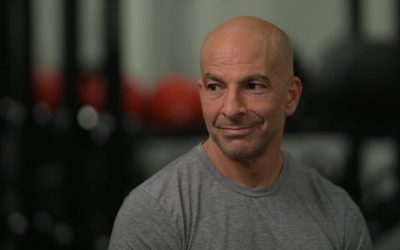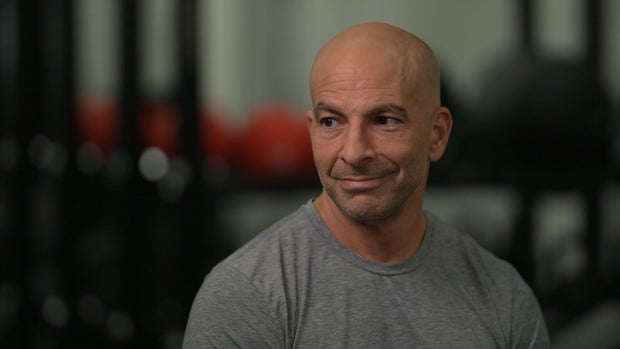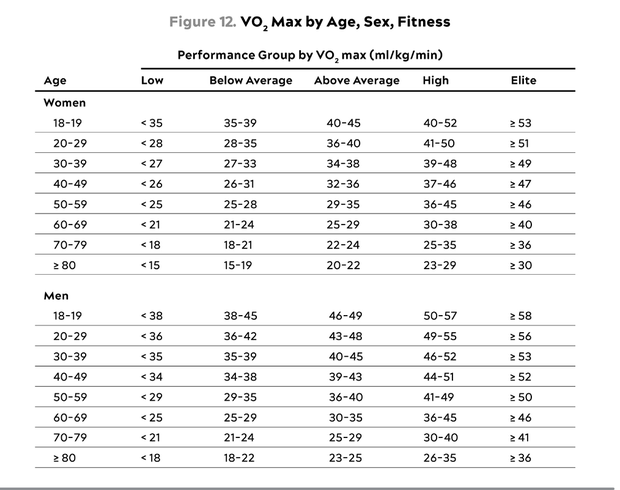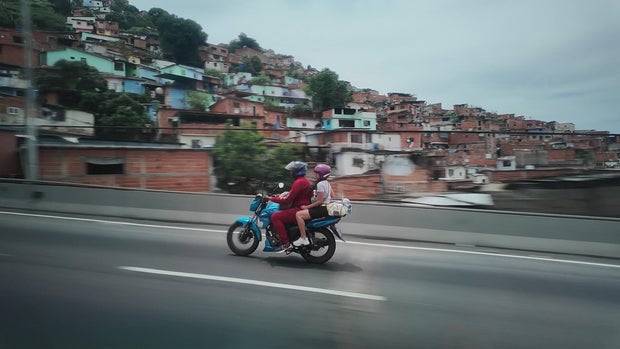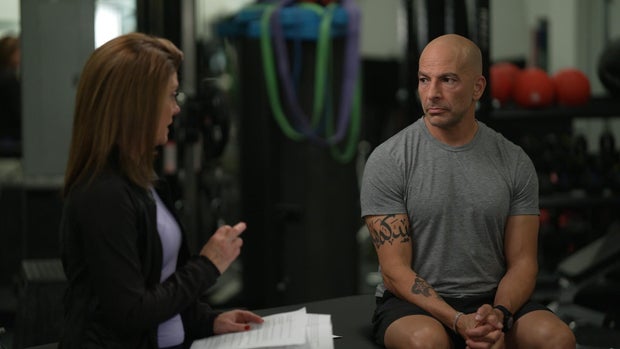What Venezuelans think about U.S. military presence, regime change and President Maduro
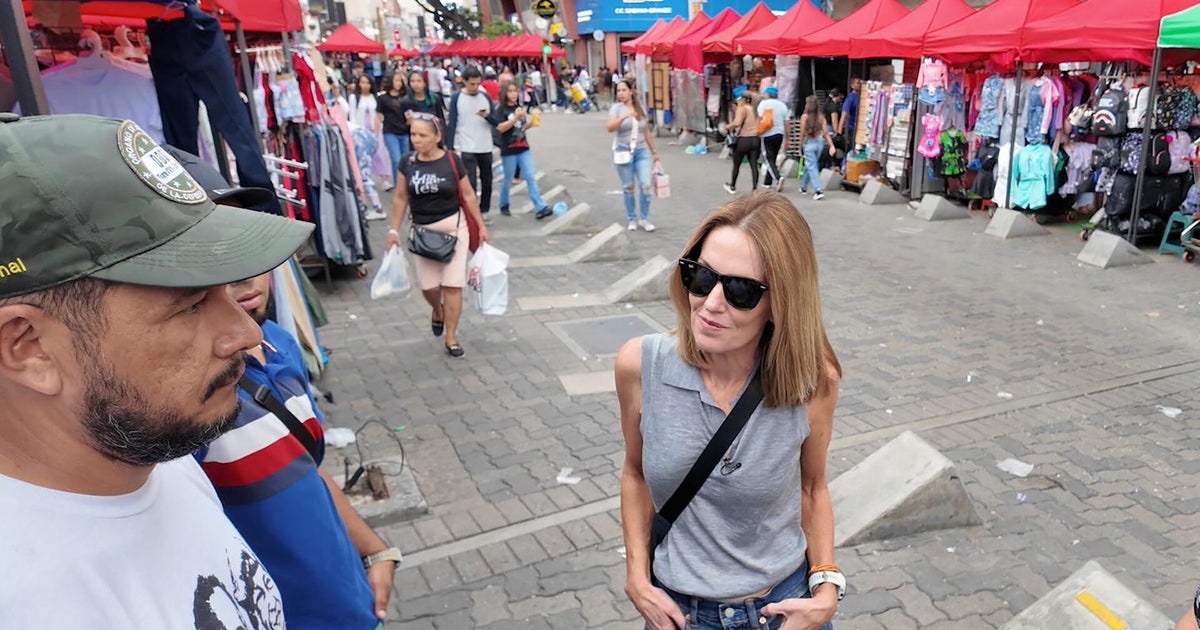
This month, correspondent Sharyn Alfonsi and a 60 Minutes team walked into a central market in Caracas, Venezuela, to speak to people after weeks of escalating tension between their country and the United States. It was a rare chance for American journalists to enter the oil-rich country.
They found a palpable sense of unease and uncertainty among Venezuelan citizens; some worried about a possible U.S. ground invasion or air strikes in their country.
“I have kids [and] grandkids, and my mother is still alive. I’m scared Venezuela is going to be bombed for no reason,” a Caracas woman told 60 Minutes.
Since August, eight warships have been stationed just off the Venezuelan coast and over 10,000 American troops are in the region.
In September, the U.S. military began bombing boats that the Trump administration alleges were part of a drug smuggling operation led by Venezuela’s president, Nicolás Maduro.
So far, the strikes have destroyed 10 boats and more than three dozen people.
“A lot of the Venezuelan drugs come in through the sea,” President Trump told the media in a press conference. “But we’re going to stop them by land also,” he said, alluding to targeted strikes in Venezuela.
Many close observers believe the increased pressure on Venezuela has an unstated goal: forcing Maduro out of office.
A former top diplomat to Venezuela, Ambassador James Story, who served in President Trump’s first term and under President Joe Biden, told 60 Minutes that the U.S. could oust him by force.
“The assets are there to do everything up to and including decapitation of [the] government,” Story told Alfonsi in an interview.
“Now, has the decision been made? That I don’t know. But it does look increasingly likely… some action may take place.”
Alfonsi interviewed Republican Sen. Rick Scott of Florida, who counts many Venezuelan immigrants among his constituents.
“Is this about anti-narcotics or is this about removing Maduro?” 60 Minutes asked the senator.
“I think it’s primarily about narco[-trafficking], and all the drugs coming in,” Scott told Alfonsi.
“I’m glad Trump’s doing what he’s doing. And I do hope Maduro’s out of power. I mean, I want him gone.”
After months of negotiations, and amidst escalating tensions with the Trump White House, Maduro agreed to do an interview with 60 Minutes.
Producer Michael Karzis was able to obtain a journalism visa through the Maduro government for himself, Alfonsi and a 60 Minutes crew.
“The Maduro government granted us a rare visa… with the intention and understanding that we were gonna do an interview with President Maduro,” he told 60 Minutes Overtime.
After the team arrived in Caracas, they set up lights and cameras in the basement ballroom of a hotel, a location hand-picked by the Maduro government.
At the last minute, as the interview was expected to begin, the team received a phone call.
“The defense minister and President Maduro’s chief intelligence officer called the interview off because of safety concerns,” Karzis explained.
“So we reset,” Alfonsi told 60 Minutes Overtime. “[We] said, ‘OK, what are we gonna do? What can we go see? Let’s go talk to people.'”
The next day, they headed to a busy market.
60 Minutes wanted to learn what Venezuelans thought of the American military presence just off the coast and whether Maduro could, or should, be removed from office.
“We’d ask people questions, and they’d kind of back off… they’re nervous that somebody’s listening from the regime,” Alfonsi told 60 Minutes Overtime.
In the last presidential election, 70% of the vote went to the opposition. It wasn’t even close.
But Maduro refused to leave, effectively stealing the presidency. Protests were met with brutal crackdowns, which the United Nations says included jailing, torturing and even killing opposition supporters.
Alfonsi asked one woman, a 20-year-old mother, what would happen if the Maduro regime was no longer in charge of the country.
“Venezuela would change and we would all be free,” she told Alfonsi.
The young woman told 60 Minutes that she understands speaking out against the government is not “smart” but she wanted to do so anyway.
“I am not in favor of the government; I am against it. I wish this world would change, so I could have a better future,” she said.
“Three days before the vote, they offer a bonus to vote the way the government wants.”
Alfonsi asked a young man in his late 20s if he thought Maduro could be replaced.
“Well, if necessary,” the young man said. “If they replace him with someone better, they should.”
Every Venezuelan 60 Minutes spoke with objected to the Trump administration’s accusation that Venezuela is running a drug manufacturing and trafficking operation with Maduro as its figurehead.
One man, who was wearing a hat with the insignia of a civilian-military organization, said the accusation didn’t make sense given the country mainly exports oil.
“The country of Venezuela doesn’t need to rely on drugs because we are a petroleum country. We have never cultivated a drug trade here,” he told Alfonsi.
The Department of Justice has put a $50 million bounty for the arrest of Maduro, and more warships are now on their way into the Caribbean.
Karzis told 60 Minutes Overtime his sources see three potential outcomes for the embattled president.
“He packs his bags and leaves. Or he’s [arrested]… or he can meet his maker,” he said.
“It’s not a question of if, but a question of when.”
The video above was produced by Will Croxton. It was edited by Nelson Ryland. Reporting in Venezuela by Sharyn Alfonsi, Michael Karzis, Katie Kerbstat and Beatriz Cecilia Jiron.
